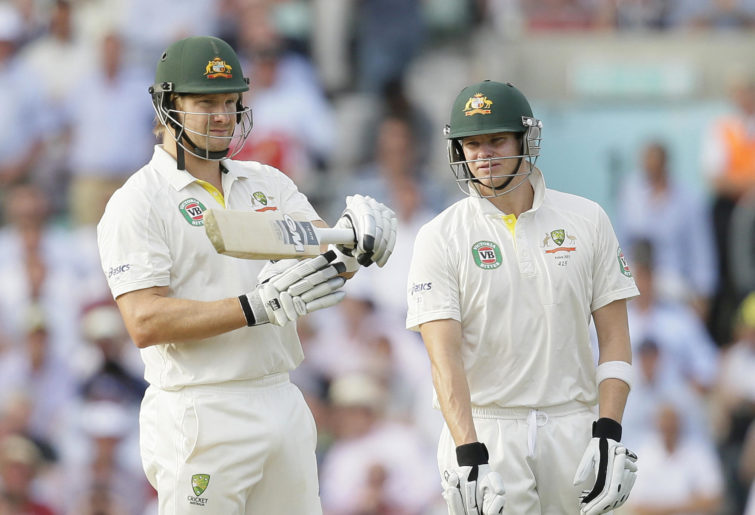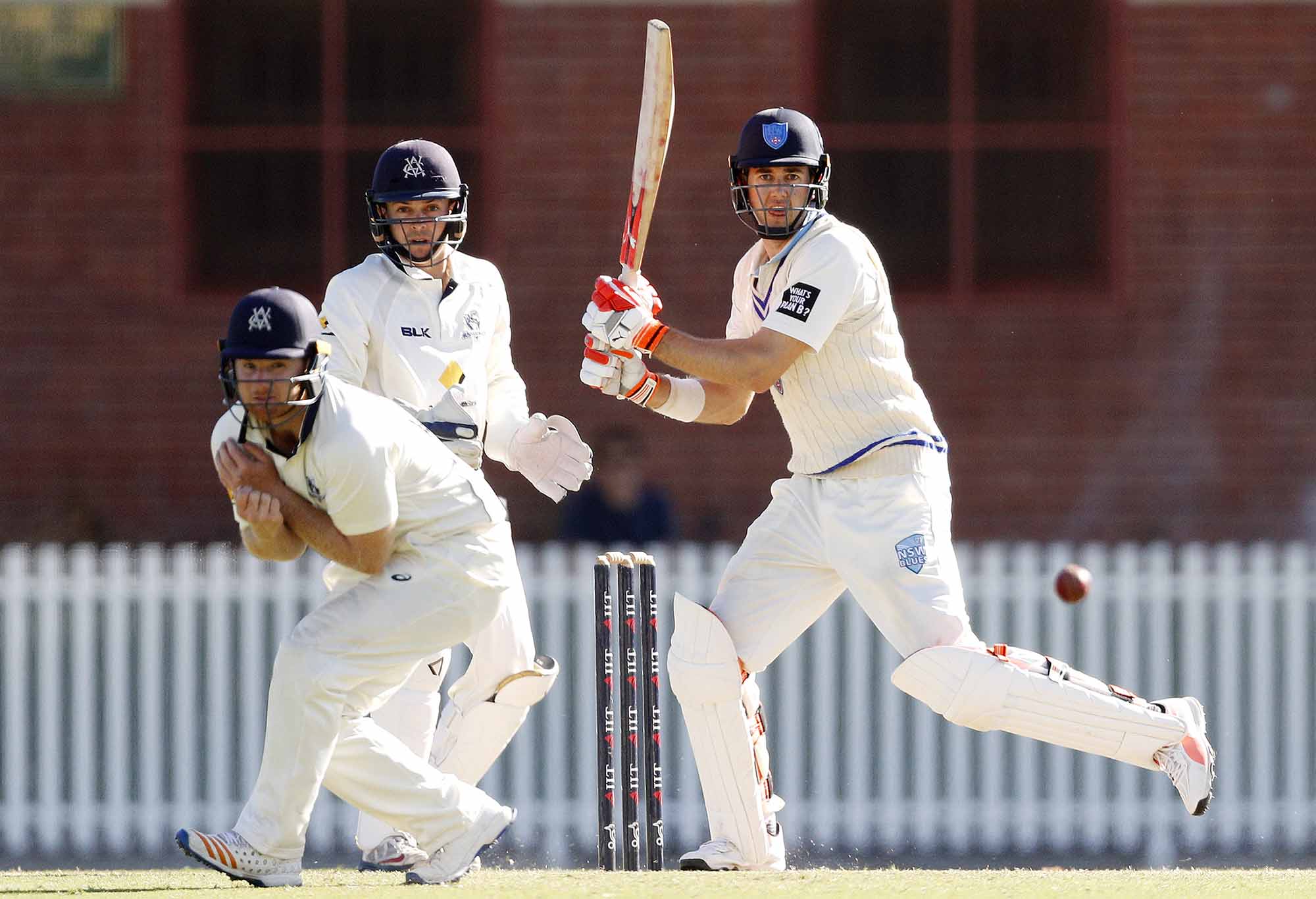The lead story on Cricket Australia’s digital platform on Friday morning read: “Baggy green bat-off: How the hopefuls fared“.
Assessing Thursday’s play in the Sheffield Shield, the piece focused on the batsmen (‘hopefuls’) it saw as contending for top-six positions in Australia’s Test side, which Justin Langer has said is ‘very open’ at present. Strong performances in the Shield could give rise to a new ‘bolter’ – a term now tiresomely synonymous with October.
The heightened focus on individual rather than team exploits at domestic level, however, tells a deeper story – one where the Sheffield Shield is now treated as mere testing grounds for international cricket and where winning is just a by-product of a greater purpose.
Shane Warne lamented the shift in an interview this week.
“The foundation of Australian cricket has always been grassroots cricket, club cricket and Sheffield Shield cricket. To me, I think Cricket Australia at the moment are devaluing Shield cricket,” he said.
Writing on behalf of the player’s association in Fairfax papers on Friday, Shane Watson reminisced about the days where the Shield was “the envy of world cricket”, and how it produced “Australian-ready players”.
Recent years, however, has seen reckless scheduling, an all-in-one-basket focus on young cricketers, rule tinkering, substitutions and workload management that has caused across the board frustration.
“Shield cricket has been tossed aside. And we see the results in the national team,” Watson wrote of one player’s submission to the long-awaited Longstaff review, due for release on Monday.

Shane Watson: never shy of being involved in a review. (AP Photo/Alastair Grant)
This players’ submission isn’t a nostalgic cry, desperate for a return to the good old days of the Shield, when punters would enter the gates for the final session and teams were stacked with Test players. There’s an equivocal understanding that times have changed.
Their submission, rather, seeks a return to the days where state cricket wasn’t rendered a stepping stone for the select few that actually go on to play for their country. A return to a respected domestic competition.
So how did Cricket Australia get into a position where it devalued the very competition that produced its best players for years on end? And more importantly, why?
Gideon Haigh’s recently released book, Crossing the Line, a seminal work on how Australian cricket got to where it is today, claims it largely started in 2012. Cricket Australia was, prior to this time, run at the behest of the state associations, with state delegates making up the board.
Its move to a streamlined, centralised board of independent directors in 2012 represented a marked change. While the move has been an undoubted commercial success – the recent $1.2 billion TV rights deal a testament to this – the quality of the Shield has been a key victim.
Since 2012, no longer has the board held state delegates who could protect the importance of the Shield. No longer does it have directors who might stand up to disastrous BBL-obsessed scheduling or to high-performance units that dictate Mitchell Starc may only bowl nine overs per day, rendering its competitiveness down to a glorified practice match.
Haigh describes the old executive system as one “replete with checks and balances, sometimes to the point of inertia, but with a robust collective purpose”. Changes were introduced slowly and steadily, to the benefit of the competition.

(AAP Image/Daniel Pockett)
The appointment of Pat Howard in late 2011 is perhaps the single most detrimental figure in the devaluing of Sheffield Shield cricket in Australia. Along with Greg Chappell, the pair have become obsessive with young talent, and nurturing them through the ‘pathways’ of ‘high performance’.
“Talent is like fruit. If you don’t pick it when it’s ripe, it’s likely to go off,” Chappell is said to use as his dictum. Their prevailing view is that the Shield is a stage that can be expedited, even bypassed, on the way to Australian selection. Steve Smith played just ten Shield games before his Australian debut. David Warner played none. They are the success stories of Australian cricket and what domestic players should strive towards (insert irony here).
PONIs (players of national interest) are the ones, in Howard’s eyes, who matter. The ones who are both below 25 and can bowl over 145 clicks or monster a length-ball over the cover fence. Mike Hussey, as one anonymous respondent within Cricket Australia ranks told Haigh, “would never have succeeded”.
The impact on the Shield means that states are further pressured to play youngsters before they are ready, with the view that they may eventually play for Australia. This ‘gifting’ of games has a flow-on effect: those older who pose no future international credibility will be cast aside. See: Ed Cowan, Mark Cosgrove, Clint McKay.
Yes, these players may not have had an international future, but their experience and brilliant first-class record make those around and against them better. Without them, the competition suffers.
The Shield has also been confined to the bookends of the season to the detriment of development. This season it will take a two-and-a-half-month hiatus while the now extended Big Bash takes centre stage over the summer months. Two and a half months without a red ball thrown in anger. This presents a huge problem for those who don’t specialise in the shortest format. Those without a BBL contract will spend December to February resigned to club cricket as a result of scheduling.
Watson concluded on Friday by stressing that the players want and expect change, which should be enacted with haste.
“The reason why this all seems so simple is because it is,” he said.
“I just have my fingers crossed that things shift sooner rather than later.”






























































































